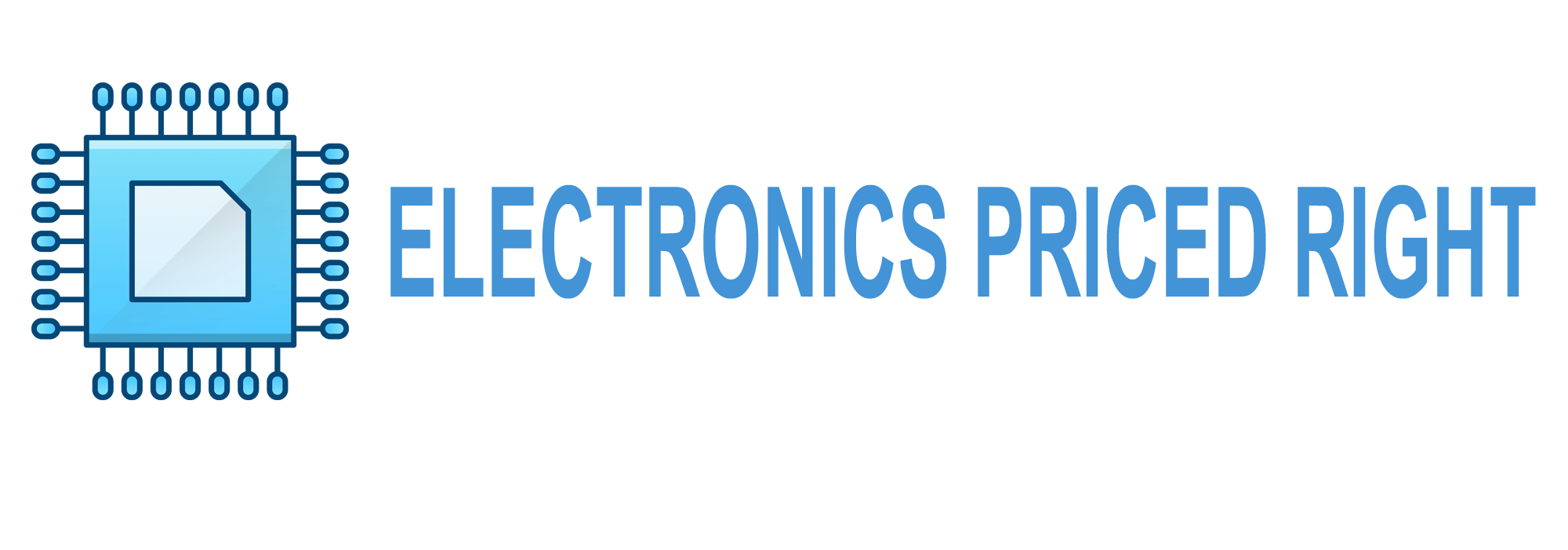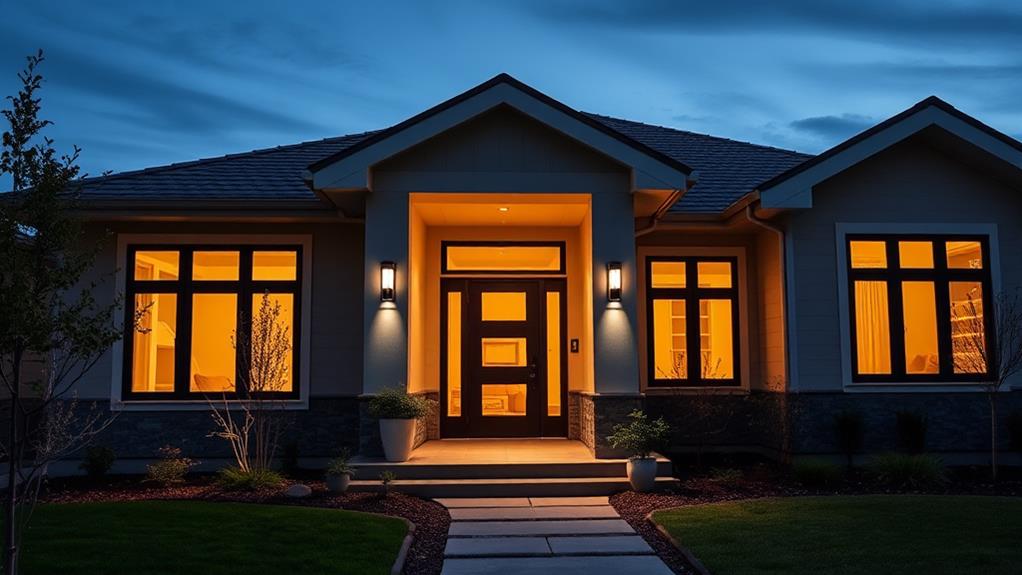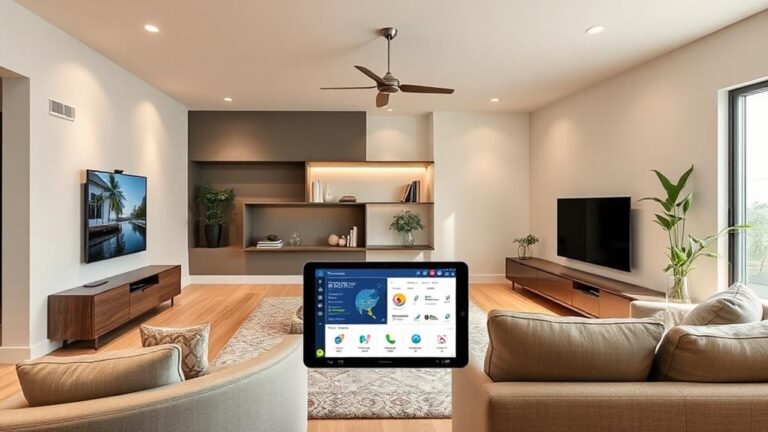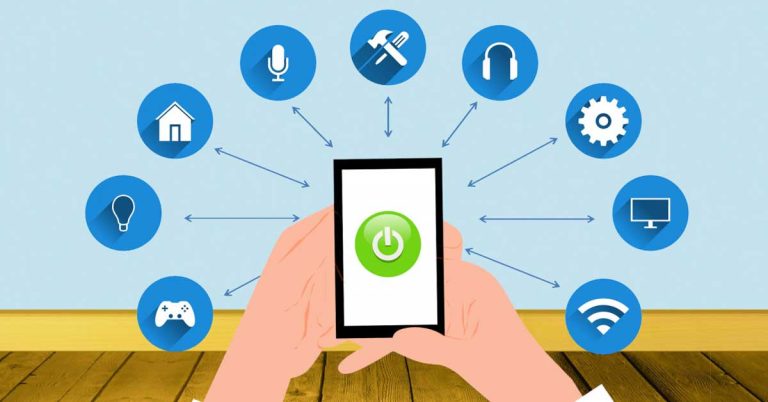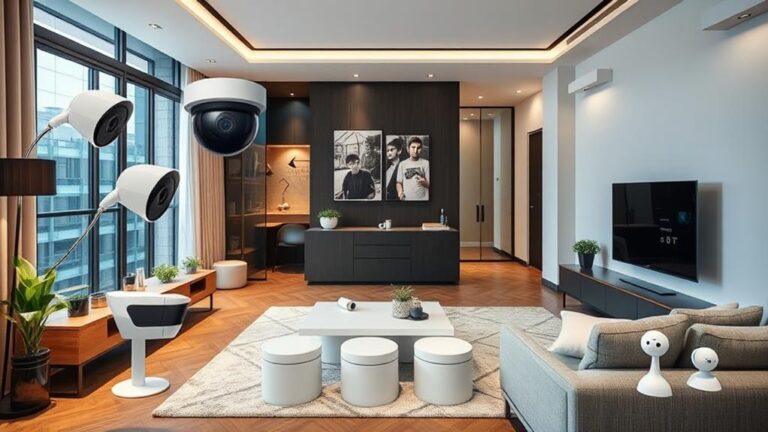Installing a home security system offers numerous benefits, like enhancing your property’s protection and potentially lowering home insurance rates. High-resolution cameras and motion sensors deter intruders by increasing the risk of detection.
Remote monitoring provides real-time access to your home’s status from anywhere, allowing you to adjust security settings as needed. Immediate alerts, 24/7 professional monitoring, and quick emergency response capabilities guarantee prompt action during a security breach. An effective system also boosts your home’s market value while integrating energy management solutions for added efficiency.
With the customizable options available, you can tailor these systems to meet specific security needs and explore more possibilities.
Main Points
- Home security systems deter intruders with visible measures and real-time surveillance.
- Remote monitoring offers peace of mind with instant alerts and live streaming capabilities.
- Systems can lower home insurance rates by reducing theft risk and damage.
- Increased home value due to enhanced security features appeals to buyers.
- Energy management integration optimizes energy use, reducing utility costs and boosting efficiency.
Enhanced Property Protection
A home security system greatly boosts your property’s protection by deterring potential intruders. With high-resolution cameras such as 2K or 5MP, you can achieve superior clarity, making it easier to identify potential threats.
It also provides multiple layers of security, enhancing overall safety. With devices like cameras, motion sensors, and alarms, monitoring your home remotely is easy. This real-time surveillance helps you stay informed about any unusual activities.
Security systems often include a control panel, the system’s brain, which communicates with each component, ensuring everything works seamlessly. Many systems offer 24/7 monitoring services, alerting authorities instantly in case of a breach. These systems can be customized to meet your needs, allowing you to choose features that best suit your property.
Investing in such technology can considerably reduce the risk of unauthorized access, safeguarding your home and loved ones.
Deterrence of Criminal Activity
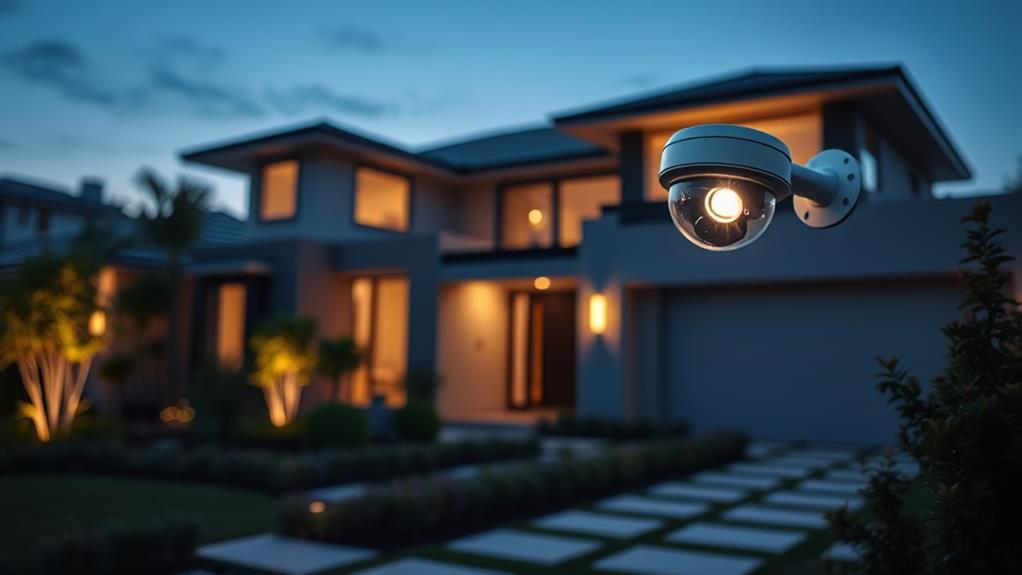
Beyond just protecting your property, a home security system plays a significant role in deterring criminal activity. Potential intruders who see security cameras, motion detectors, or alarm systems, are often discouraged from targeting your home.
Criminals prefer easy targets, and visible security measures suggest an increased risk of detection and arrest. The presence of a home security system, often indicated by signage or visible equipment, acts as a psychological barrier. It signals to would-be intruders that your home is not an easy mark.
Many systems also include features like sirens or lights, which can activate when unauthorized access is detected, further deterring criminal actions.
Integrating smart security solutions into your home can enhance these deterrent effects by offering advanced technology and real-time monitoring. Simply put, the more difficult it is for criminals to break in, the less likely they are to attempt a break-in.
Remote Monitoring Capabilities
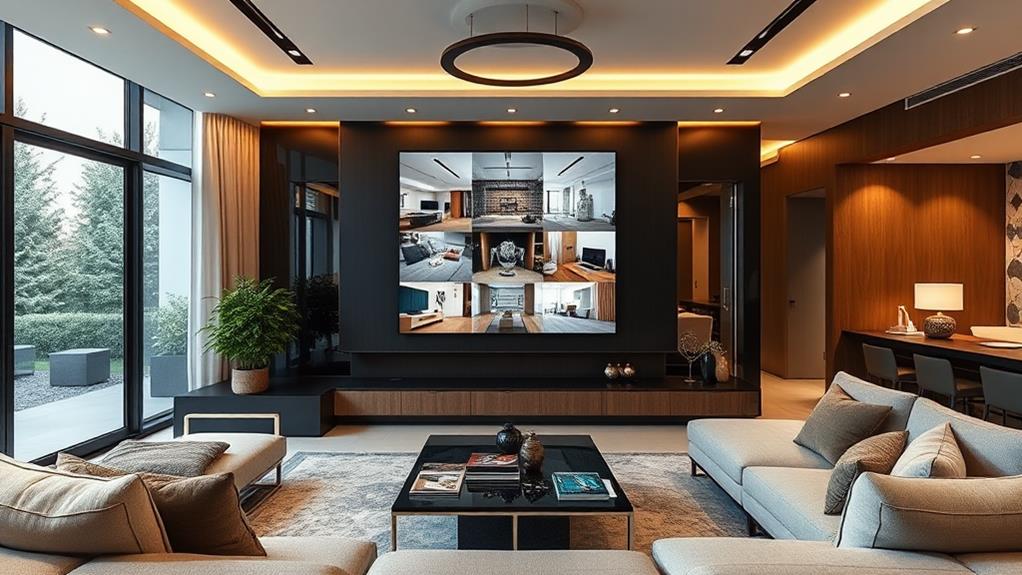
Remote monitoring technology transforms how you manage your home security by offering real-time access from virtually anywhere. In addition to providing peace of mind, video doorbell solutions enhance security by integrating seamlessly with remote monitoring systems.
You can check live video feeds, receive alerts, and control devices using a smartphone or a tablet. This capability guarantees you’re always connected to your home, providing peace of mind at work or on vacation. With remote monitoring, you can quickly respond to incidents, such as triggering alarms or contacting authorities, reducing potential damage or loss.
Key benefits include:
- Instant Alerts: Receive notifications for unusual activities, so you’re immediately informed of any security breaches.
- Live Streaming: Access real-time video to verify the safety of your property and loved ones.
- Remote Control: Adjust settings like lighting or thermostat, enhancing security and energy efficiency.
This technology offers a versatile layer of protection and convenience.
Lower Home Insurance Rates
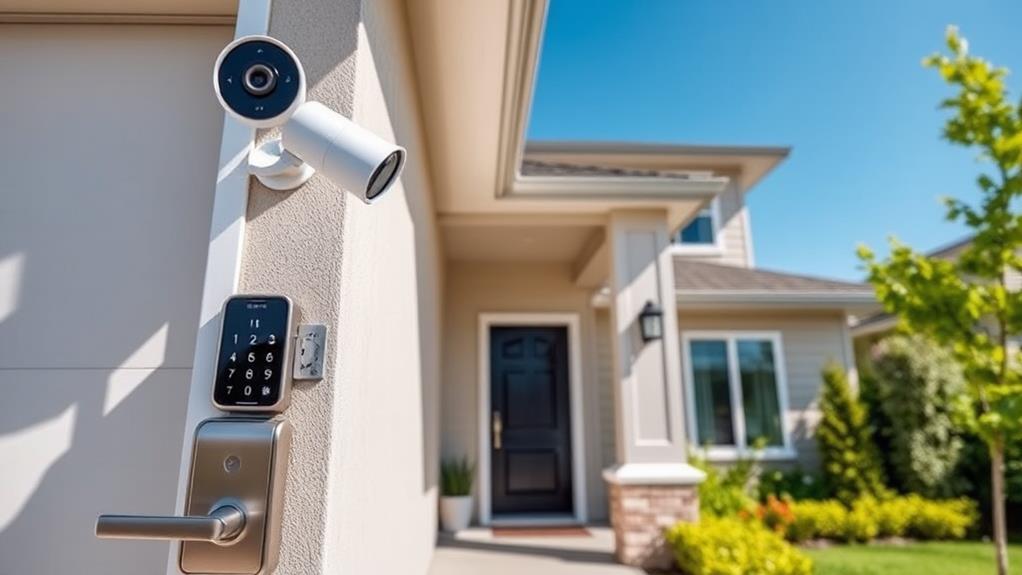
Installing a home security system can lower home insurance rates. Insurance companies often offer discounts because a security system reduces the risk of theft or damage to your property. By investing in devices like surveillance cameras and alarm systems, you’re demonstrating proactive measures to protect your home.
This lowers the insurer’s potential payout, which translates to savings for you. Additionally, having an extensive security setup can deter potential intruders, providing peace of mind and added protection for your family.
Inform your insurance provider about your security upgrades. They’ll likely require proof, like a certificate of installation, to apply the discount. A home security system can enhance safety while making your insurance more affordable.
Immediate Emergency Response
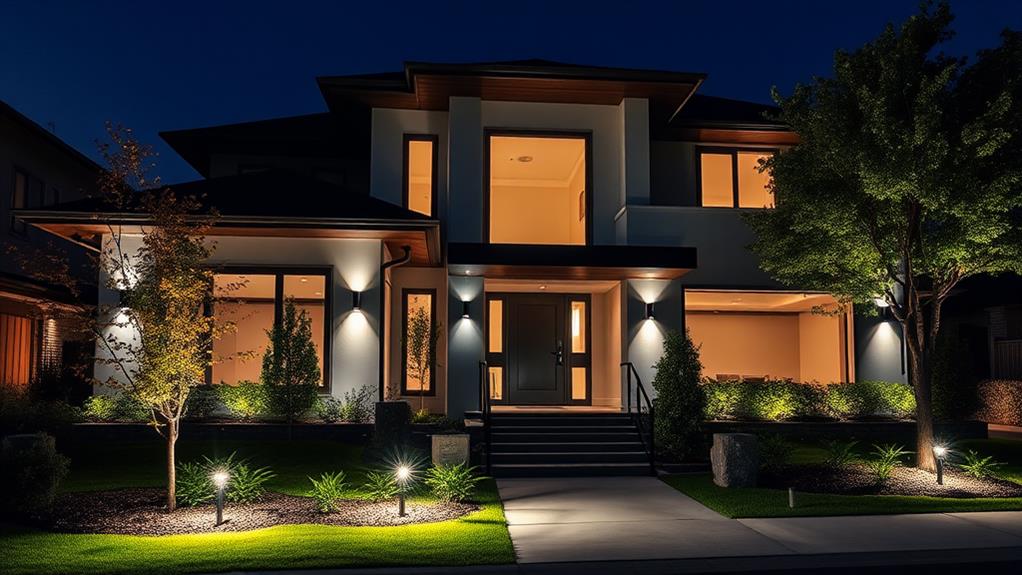
How quickly can help arrive when you need it most? With a home security system, emergency response times can be greatly reduced. These systems are designed to immediately alert authorities when a threat is detected, whether a break-in, fire, or medical emergency.
This quick action can be critical, potentially saving lives and property. Many modern systems also include advanced sensors and cameras that provide an extra layer of security. Consider these benefits:
- Real-time alerts: Your system sends notifications directly to local emergency services, guaranteeing their awareness of the situation as it unfolds.
- 24/7 monitoring: Professional monitoring guarantees that someone is always ready to act, even when you’re not home.
- Integrated technology: Advanced sensors and cameras provide extensive coverage, so nothing goes unnoticed.
These features guarantee a rapid response, offering peace of mind and enhanced safety for your household.
Increased Home Value
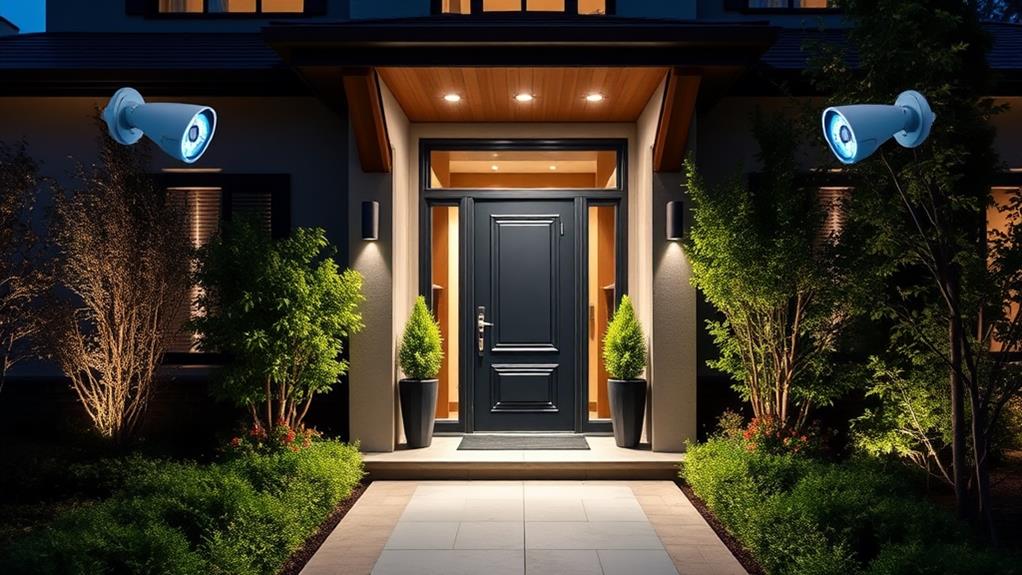
Beyond offering immediate emergency responses, a home security system can enhance your property’s market value. When potential buyers assess homes, they often seek features that provide added security and peace of mind.
A home that’s equipped with a reliable security system indicates a level of care and modernity, often making it more appealing. This enhancement can translate into higher offers or quicker sales, as buyers value the reduced risk of theft or property damage.
A security system might also lower homeowners insurance premiums, an attractive financial benefit for prospective buyers. In a competitive real estate market, a home security system can be a distinguishing factor, setting your property apart and potentially increasing its overall market value.
Safety for Family Members
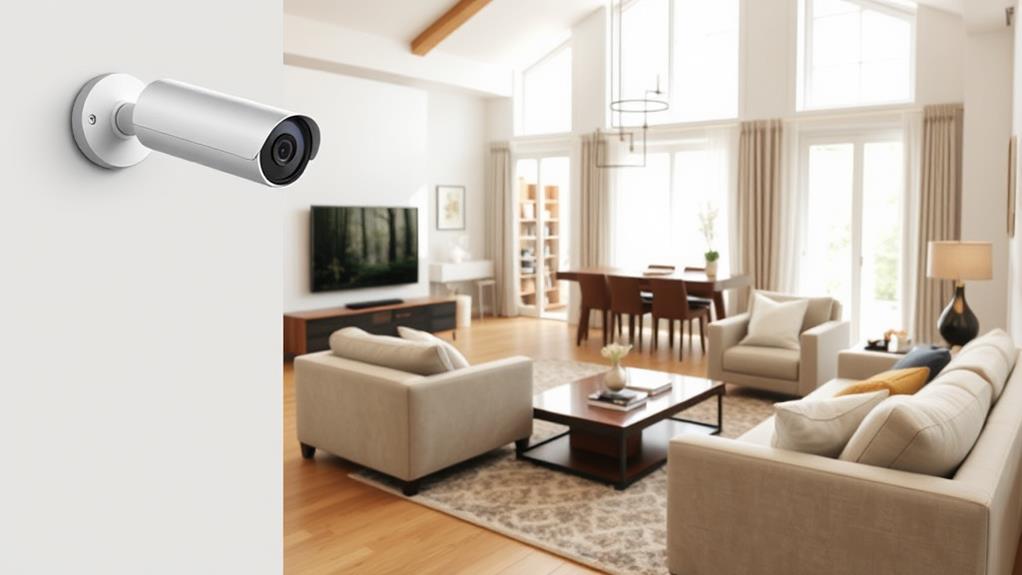
The most compelling reason to invest in home security is for your family’s safety. Such systems provide peace of mind by offering round-the-clock monitoring. If an intruder attempts to break in, the alarm system activates, alerting you and the authorities.
Security systems often include motion detectors and cameras, which help monitor unusual activities around your home. This capability is essential for families with young children or elderly relatives who might be more vulnerable.
Consider these benefits:
- Immediate Alerts: Receive instant notifications on your smartphone if any suspicious activity is detected.
- Emergency Assistance: Panic buttons can quickly summon help in case of medical emergencies or threats.
- Deterrent Effect: Visible security measures discourage potential intruders from targeting your home.
Energy Management Integration
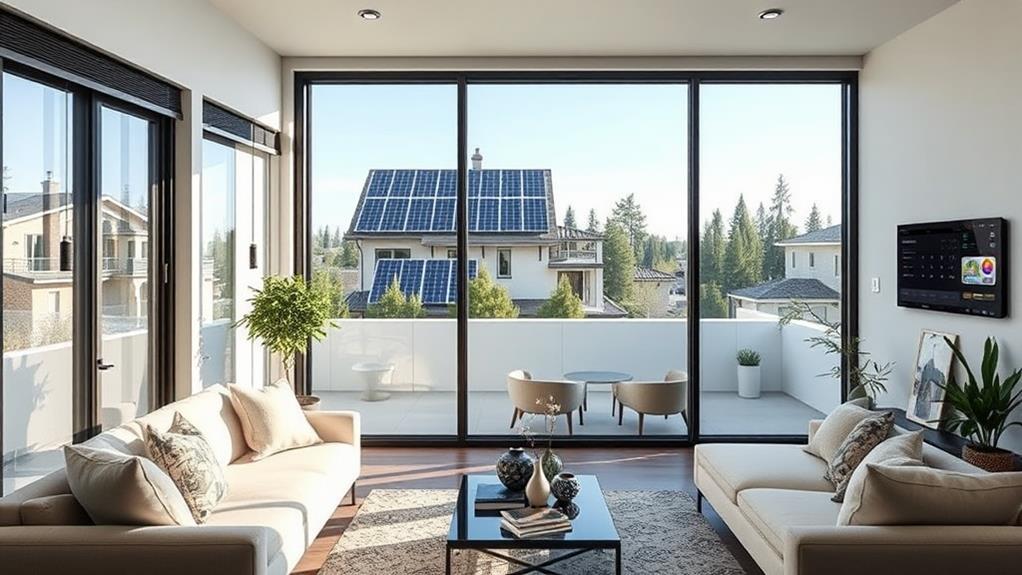
Incorporating energy management into your home security system offers a dual advantage of safety and efficiency. Integrating smart thermostats and lighting controls can optimize energy use and reduce utility costs.
These systems allow you to monitor and adjust temperature settings or lighting remotely through a mobile app, ensuring your home remains comfortable and energy-efficient.
This capability not only enhances convenience but also contributes to sustainable living. Real-time energy usage data helps you identify patterns and make informed decisions about consumption.
Some systems even offer automation, adjusting settings based on your habits or time of day. Energy management integration is a smart investment, providing peace of mind while helping you conserve resources and save money over time.
Customizable Security Solutions
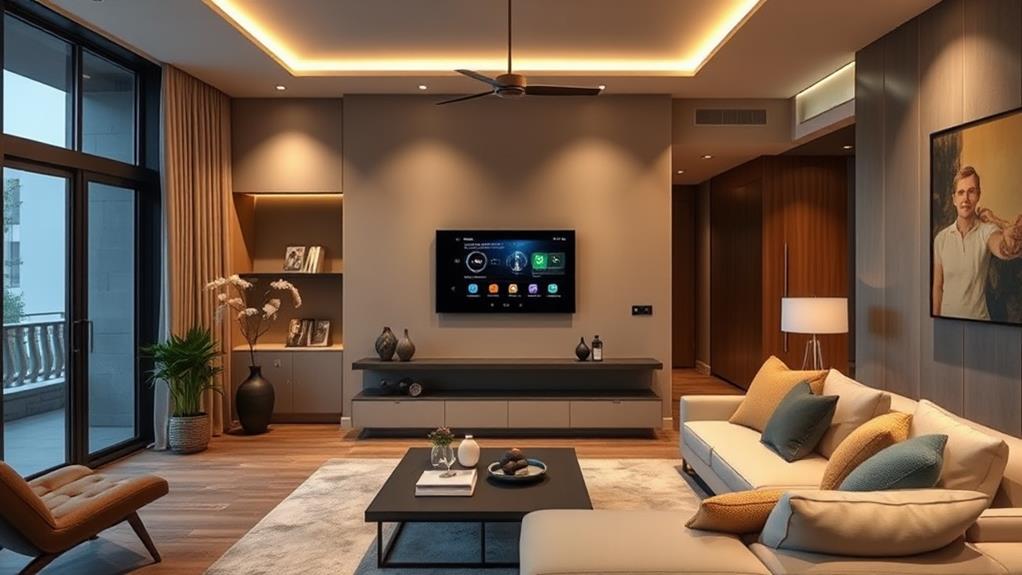
With customizable security solutions, you can tailor your home protection to fit your unique needs and preferences. These systems allow you to choose among components, such as cameras, sensors, and alarms, ensuring thorough coverage.
You can select the level of monitoring that suits your lifestyle, from basic self-monitoring to professional oversight. This flexibility enhances security and integrates seamlessly into your daily routine. Consider the following advantages:
- Scalability: Expand your system as your needs grow, adding more devices or upgrading technology without hassle.
- Personalization: Adapt features like motion detection sensitivity and notification settings to match your specific environment.
- Integration: Connect with other smart home devices, creating a cohesive network that enhances efficiency and security.
With these options, you maintain control over your home’s safety.
Frequently Asked Questions
How Much Does a Typical Home Security System Cost to Install and Maintain?
When you’re considering installing a home security system, costs can vary greatly. Typically, installation fees range from $100 to $250. Monthly monitoring services, which alert authorities during emergencies, usually cost between $20 and $60. Equipment expenses, such as cameras and sensors, depend on the complexity of the system you choose. It’s crucial to account for potential additional costs, like maintenance and upgrades, ensuring your system remains efficient and up-to-date.
Are There Any Privacy Concerns With Home Security Systems?
When you install home security systems, privacy concerns can arise, especially with devices like cameras and microphones. These systems can collect video and audio data, potentially exposing private moments if hacked or improperly managed. Guarantee the company uses encryption, which scrambles data to protect it during transmission. You should also regularly update passwords and firmware. Be mindful of where cameras are placed, avoiding sensitive areas like bedrooms or bathrooms to maintain privacy.
Can Home Security Systems Be Integrated With Smart Home Devices?
Yes, you can integrate home security systems with smart home devices, enhancing your control and convenience. Most systems are compatible with smart assistants like Alexa or Google Assistant, allowing voice commands. You can link cameras, alarms, and locks to your smart hub, creating a seamless automation experience. For instance, you might set lights to turn on when motion is detected. Ascertain devices support protocols like Z-Wave or Zigbee for smooth integration.
What Should I Consider When Choosing a Security System Provider?
When choosing a security system provider, consider their reputation, customer service, and monitoring options. Guarantee they offer 24/7 professional monitoring, which means trained professionals will respond to alarms anytime. Look into the provider’s technology, like mobile app control or integration with smart home devices. Check contract terms for hidden fees or long-term commitments. Finally, read customer reviews to gauge satisfaction and reliability, guaranteeing the provider meets your security needs effectively.
How Reliable Are Wireless Security Systems Compared to Wired Ones?
When considering wireless security systems, they’re generally reliable and offer flexibility, especially in installation. They use radio signals to communicate between devices, which means there is no need for extensive wiring. However, they can occasionally face interference from other wireless devices. Wired systems, on the other hand, provide stable connections since they don’t rely on radio signals, but their installation is more complicated and intrusive, involving drilling and potential structural alterations.
